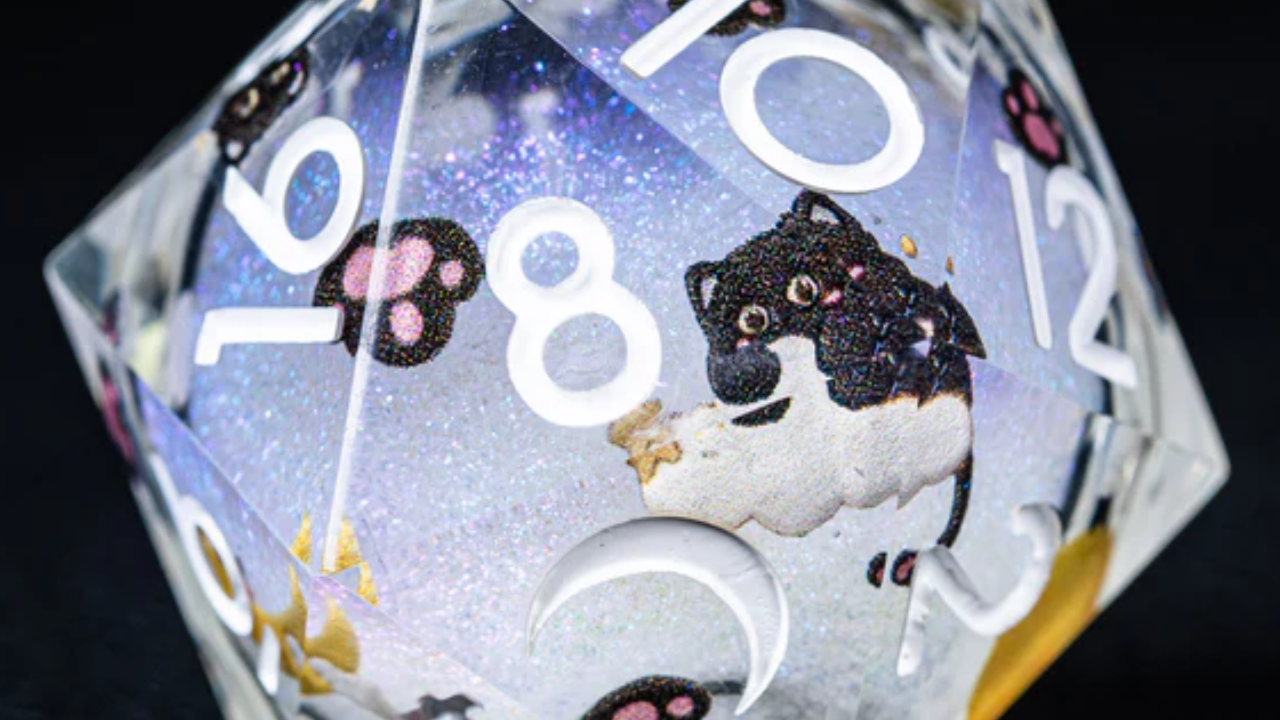Depending on the kind of dice, they may be used in D&D for a selection of purposes. D4s, D6s, and D8s are often used to decide someone's stage of harm in a fight or if they had been successful or unsuccessful at an interest. While d12s and d20s are extra regularly used for potential checks, talent assessments, and saving throws, d10s are occasionally employed to determine the final results of a check or the quantity of damage inflicted.
Dice are like mini-balls. In case you roll them, they land on quite a number and this is your rating. Distinctive dice have special numbers on the pinnacle and the bottom. You can use one-of-a-kind dice for dnd for distinct video games or even with folks who can't see well. Its miles a laugh to roll them and observe the numbers in a while to see what you bought.
In D&D, Are There Any Additional Uses For Dice Than Skill Checks And Combat?
D&D employs dice in a number of different contexts than battle and skill checks. You could employ dice, for instance, to determine how random events will turn out. Players may request that the DM roll a die to determine whether their character succeeds when they want to attempt something that isn't specifically permitted by the rules.
This is usually used for things like sneaking around or persuading people that your character is trustworthy. You may use dice to help you decide how your character grows and changes over time. When your PC completes an activity or milestone, the DM will roll some dice to decide how many character development points they will earn.
Benefits of D&D Dice Games
D&D cube games have some real blessings similar to being wonderful, like enhancing social abilities and cognitive abilities. We discover the main benefits of gambling D&D dice video games in this newsletter.
Cognitive and Mathematical Skills
D&D dice games demand players to do a variety of mathematical calculations, including calculating damage, applying modifiers to dice rolls, and solving puzzles. Based on the numerical results of their dice rolls, players acquire the skills necessary to strategize, evaluate odds, and make wise judgments. Due in large part to these mathematical components, D&D is a great tool for developing critical thinking and problem-solving skills, especially among younger players.
Creative Storytelling
At its foundation, D&D is a storytelling game. Participants take on the roles of characters and participate in a story as a group. Unexpected turns and twists in the plot are sparked by the dice. In order to overcome obstacles, communicate with non-player characters, and resolve conflicts, players must use their imagination. Collaborative storytelling encourages imagination, creativity, and story-building while giving participants a special opportunity to hone their storytelling skills.
Social Interaction and Teamwork
D&D is a cooperative recreation that fosters social interaction and teamwork among players. Its miles a social recreation by means of nature. Gamers should cooperate in order to finish missions and adventures efficiently. They have to combine their characters' skills and powers to overcome demanding situations.
This D&D function encourages group participants to speak, work collectively, and resolve problems successfully. The game gives a prepared and encouraging place for forming connections and enhancing social abilities, which may be especially useful for people who are socially awkward or shy.
Lifetime Instruction
The game D&D is always changing. Regular releases of new rulebooks, expansions, and campaign settings give players the chance to continue learning throughout their lives. It is up to the players to explore new areas, adjust to new laws, and learn more about the game's mythology. Long-term gaming can benefit from this ongoing learning process, which can also be cognitively interesting and innovative.
Psychological and Emotional Health
Because D&D is so absorbing, players can momentarily forget about the pressures and responsibilities of daily life. It provides an emotionally healing means of escape that encourages calm and lessens tension. Playing a role as a fictional character can also give people fresh insights and coping mechanisms for problems they face in real life.
Summary
D&D dice games provide a variety of advantages, including social engagement, emotional health, and cognitive development. They are more than just games; they are doors to meaningful experiences and personal development. Millions of players worldwide have fallen in love with Dungeons & Dragons (D&D) because it's an immersive, imaginative experience rather than just a game.


